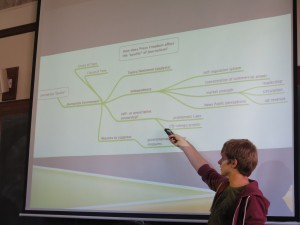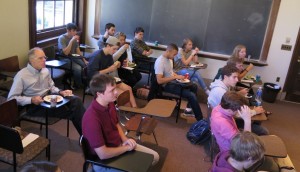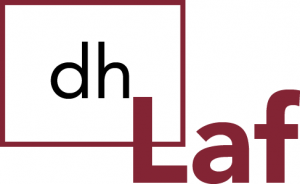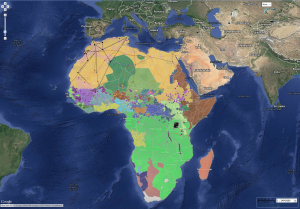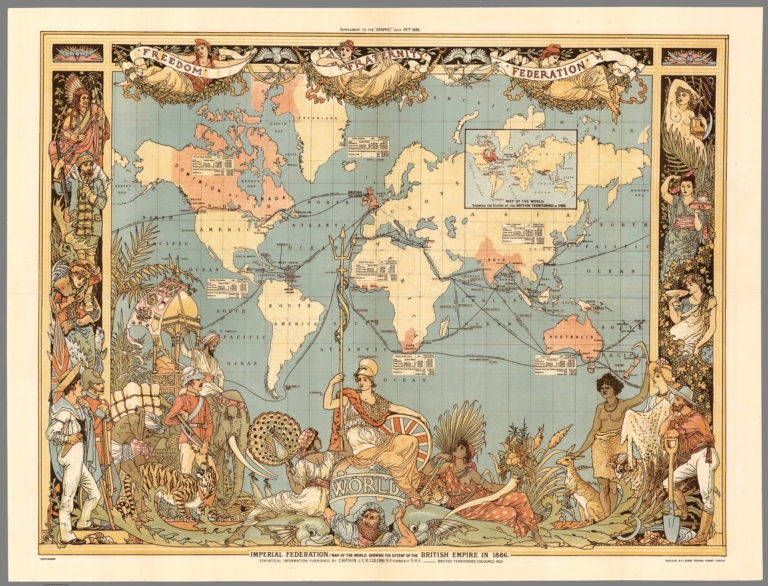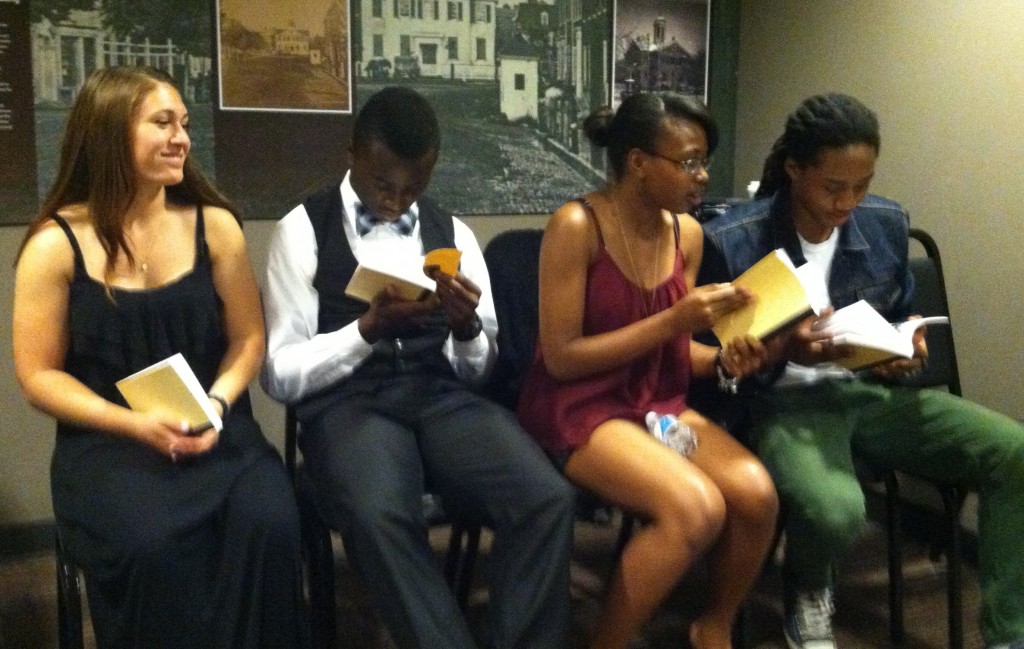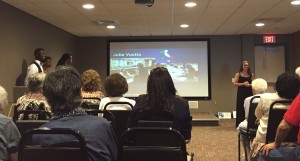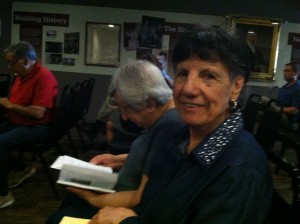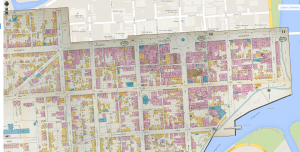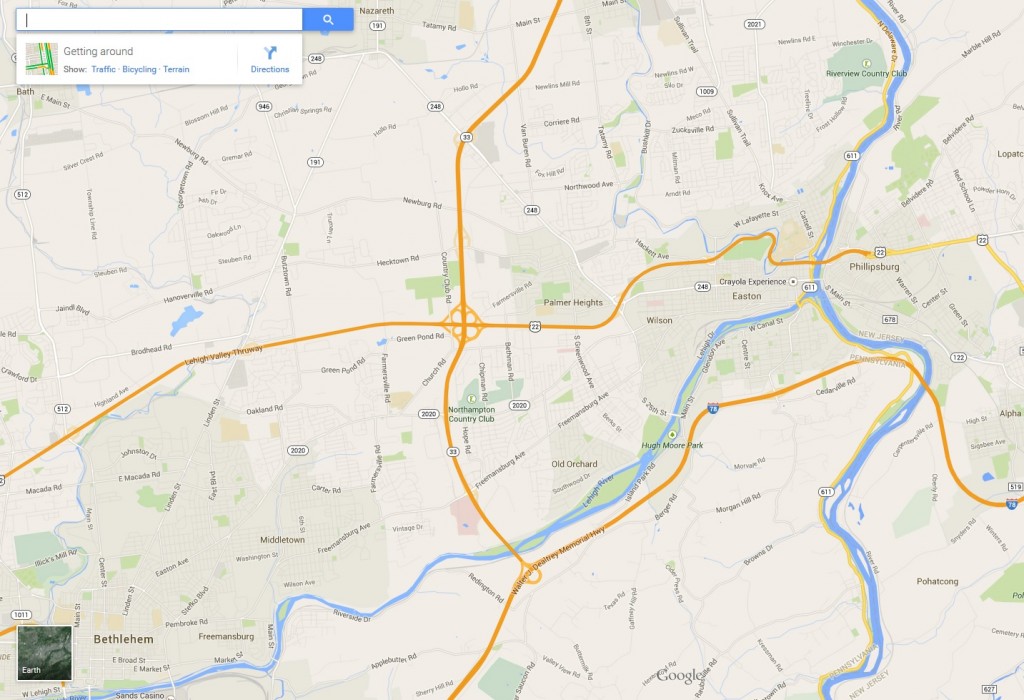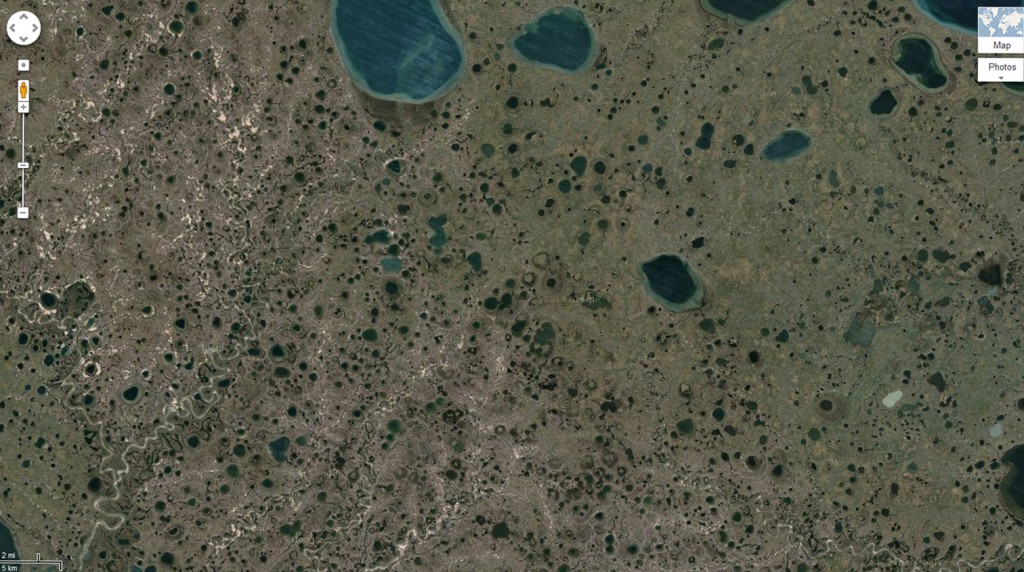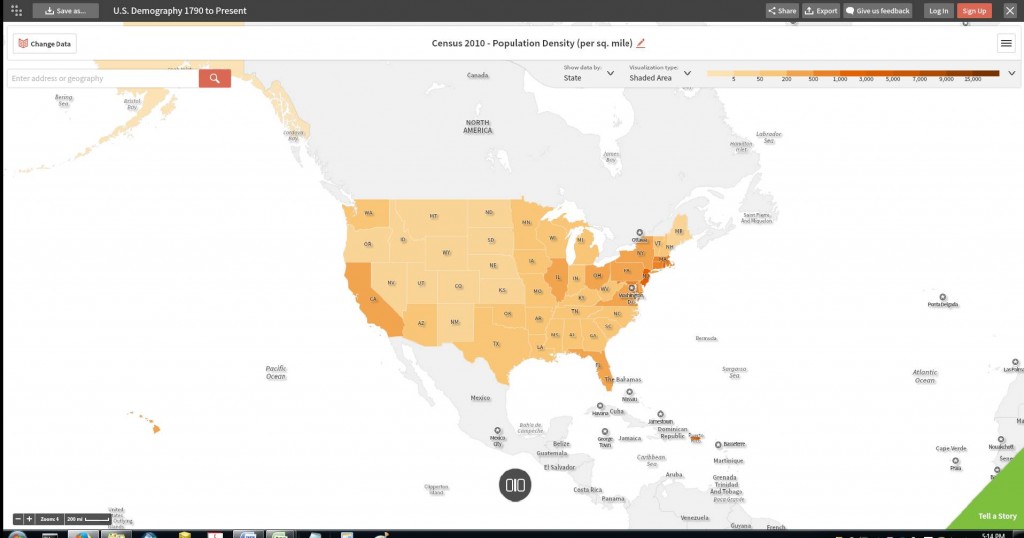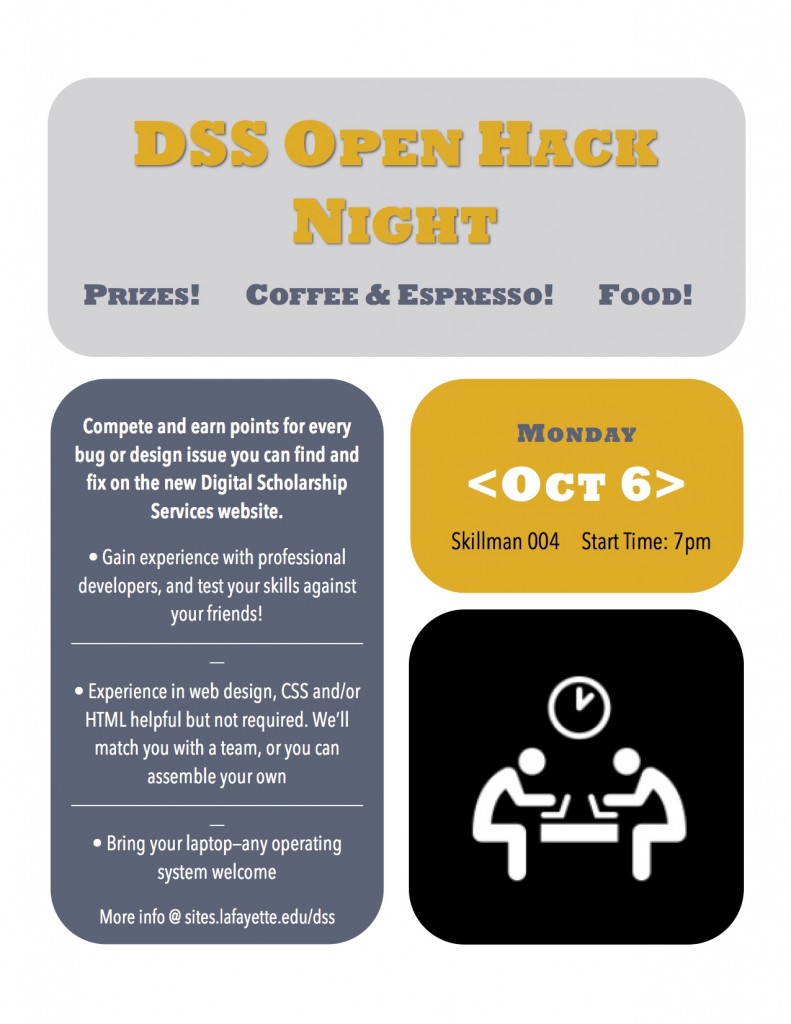As part of the Keystone Digital Humanities consortium, Skillman Library’s Digital Scholarship Services participated in a virtual transcribathon along with nine other colleges and universities from the area including Muhlenberg, Lehigh, Bucknell, and University of Pennsylvania. With a great turnout of 10 contributors over the course of the event including five undergraduates and several librarians, the team was able to transcribe 125 new records, all while building a community of DH practitioners on campus and connecting with our colleagues across the state.
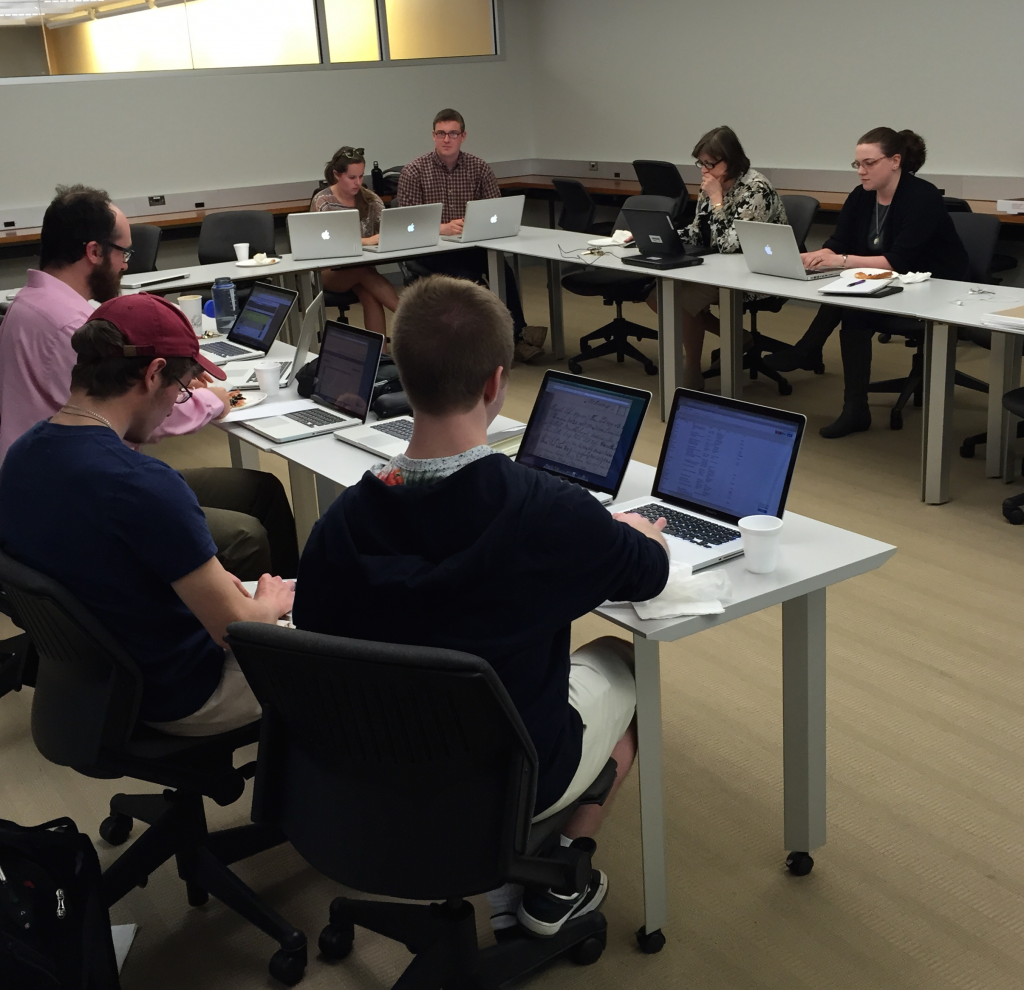
Transcribathon participants working on ELC pages
Our group chose to transcribe ledger records from our Easton Library Company project. On hand for the event were Professor Chris Phillips, the primary researcher on the ELC project, Diane Shaw from Lafayette’s Special Collections, and a number of undergraduate students interested in working on digital humanities projects. The ledgers contain the loan records from the Easton Library in the early 1800s. The goal of transcribing these ledgers is to gain insight into the reading practices of 19th century readers and to learn more about Easton’s local history. (To learn more about the project read our previous post on the ELC.)
As the students would find out, transcribing the pages involved not simply transferring the handwritten records into type, but also required lessons in 19th century librarian short hand, research into complex book titles, and a bit of forensic investigation. After the first few successful entries, it was easy to get lost in the world of early Easton, finding names of residents that now appear on street signs and building, and discovering long forgotten novels. Correctly deciphering an entry started to bring out the competitive spirit in the participants and by the end of the night everyone had fun engaging in some biblio detective work.
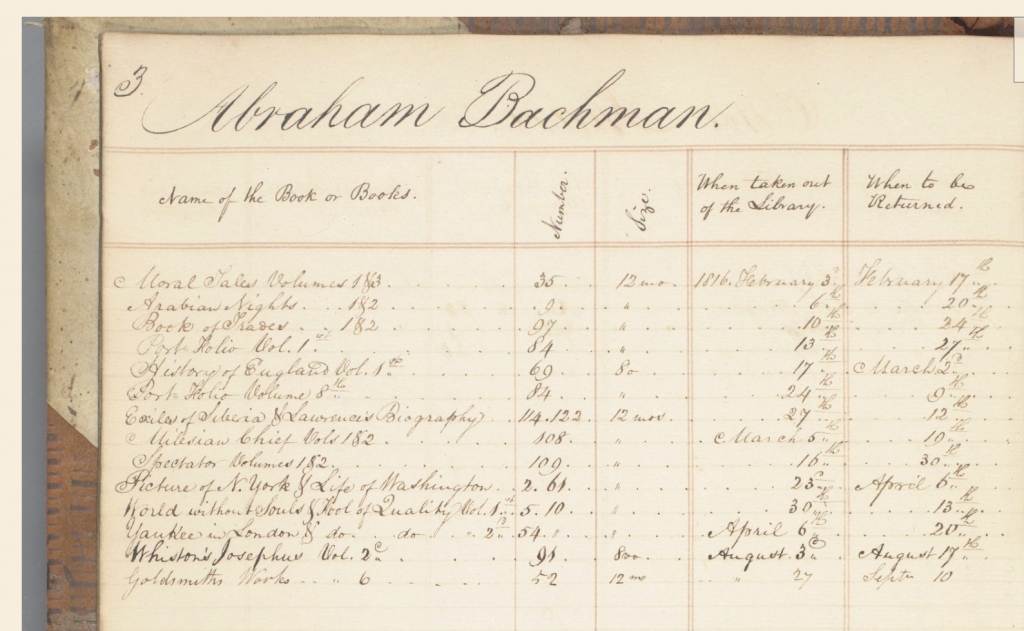
Example of a ledger page from 1823
The event lasted three hours with similar transcription efforts happening simultaneously across all of the the participating campuses connected via Google Hangout. The Keystone DH group designed this initiative based on a transcribathon event at the Folger Shakespeare Library in December. The Folger event lasted for 12 hours with 35 participants transcribing and encoding manuscript pages for inclusion in the Early Modern Manuscripts Online project. This event, though shorter in duration, was an experiment in fostering a broader community and connecting like-minded scholars and researchers all of whom are working on long term digital humanities projects.
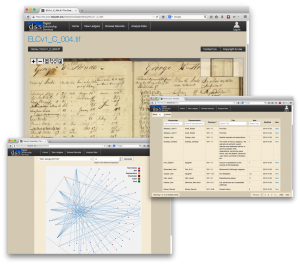
Sample ledger facsimile, relational data table, and network graph visualization.
The data collected at the event will be added to the ELC’s quickly expanding relational database and the Transcribathon also gave us the opportunity to test a new data entry interface that Digital Scholarship Services has created. Working closely with the students engaged on the project, DSS developers James Griffin and Thom Goodnow have built forms designed to the specific needs of the ELC and the feedback from the Transcribathon will be used to refine these tools even further. Once complete, this project will allow users to investigate and visualize this data on their own and discover new relationships between readers, lenders, and the community. For us the feedback, as well as the data recorded, are invaluable in advancing the project and we look forward to more opportunities to collaborate with the Keystone community in the future.
For more information on starting a digital project with DSS or applying for an internship opportunity contact us at digital@lafayette.edu , or call (610) 330-5796.
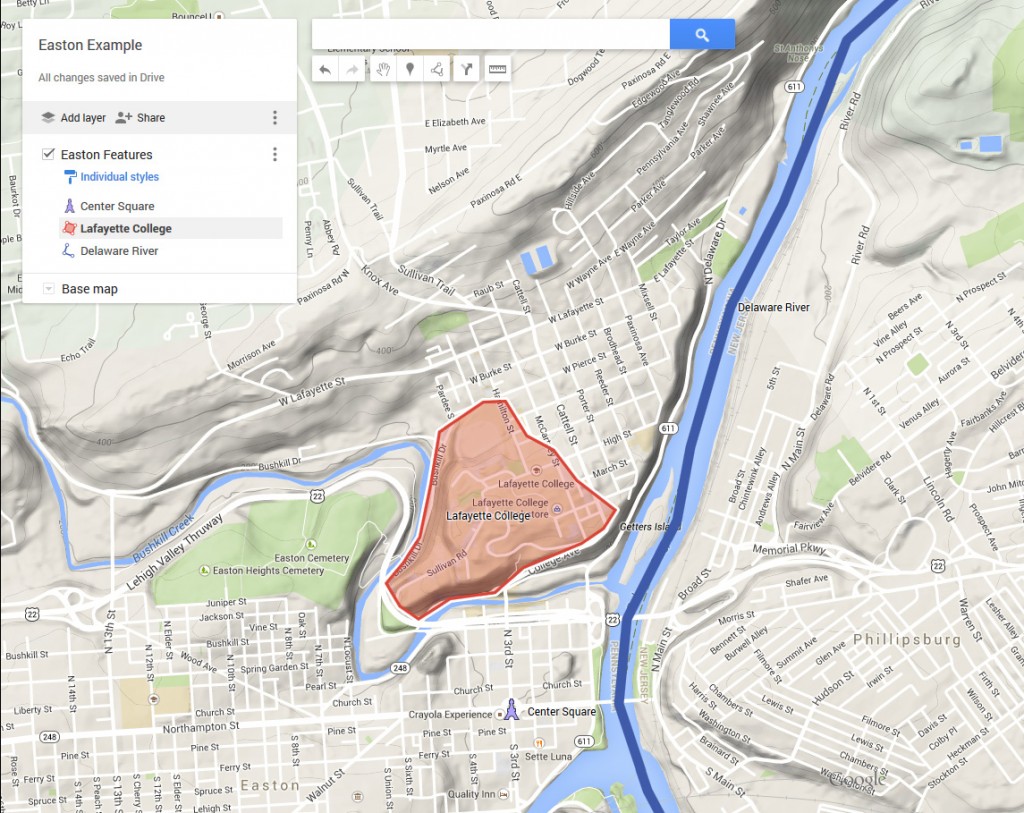 There is a lot more to Google Maps than meets the eye. Join John Clark, DSS’ Data Visualization & GIS Librarian, for a glimpse of what goes on “under the hood” of this online mapping resource and how you can use it to make your own customized maps. Participants will learn how to contribute their own content to a Google Map as well as many other tips and tricks for creating useful and well designed maps with nothing more than a web browser. Windows laptops will be provided for all participants, but feel free to bring your own.
There is a lot more to Google Maps than meets the eye. Join John Clark, DSS’ Data Visualization & GIS Librarian, for a glimpse of what goes on “under the hood” of this online mapping resource and how you can use it to make your own customized maps. Participants will learn how to contribute their own content to a Google Map as well as many other tips and tricks for creating useful and well designed maps with nothing more than a web browser. Windows laptops will be provided for all participants, but feel free to bring your own.
